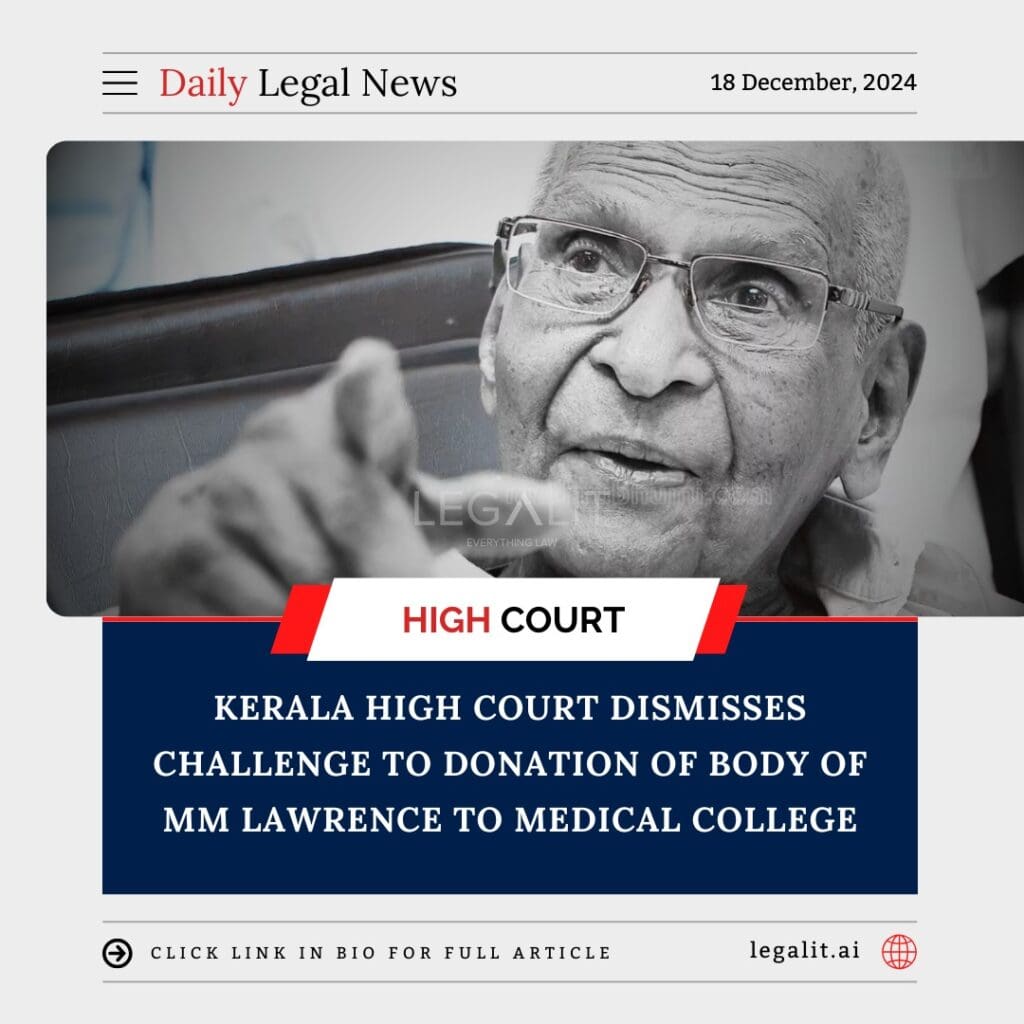
The Kerala High Court has dismissed a challenge against the donation of the body of MM Lawrence, a prominent leader, to a medical college for educational purposes. The court upheld the decision, emphasizing the legality and public interest involved in such acts of organ and body donation.
Background:
The petition challenging the donation was filed by a group of individuals who contested the legal validity of donating the body of MM Lawrence to a medical institution. The petitioners argued that the donation violated certain personal and religious sentiments, claiming that it should not be allowed without prior consent from the deceased’s family.
The Kerala High Court, while examining the matter, considered various legal precedents and the importance of such donations in the context of medical education. It noted that donation of human bodies for educational purposes is a recognized practice under Indian law, provided the proper legal formalities are followed.
Key Arguments:
- Petitioners’ Stand:
- The petitioners contended that the donation of the body without consent from the family was unlawful.
- They argued that it went against personal and religious beliefs, which may consider such donations inappropriate.
- The petitioners sought to prevent the body from being donated to the medical college based on these grounds.
- Respondents’ Stand:
- The respondents, including the medical college, asserted that the body donation was made in accordance with legal and medical procedures.
- They emphasized that such donations are valuable for medical education and are often made by individuals or their families voluntarily.
- The respondents also pointed out that the act of body donation had been duly registered and carried out under the guidance of relevant authorities.
Kerala High Court’s Observations:
The High Court bench, led by Justice A.M. Shaffique, dismissed the petition, emphasizing that the donation was made legally and in compliance with the applicable laws. It observed:
- The body donation was done in accordance with the procedures laid out by the Medical Council of India and the relevant statutes governing organ and body donations.
- The court acknowledged that such donations are crucial in advancing medical education and research and contribute to the broader public good.
- The court also reiterated that the individual’s wishes or the family’s consent should be given due consideration in such matters but clarified that once proper legal protocols are followed, challenges based on personal or religious views cannot override the law.
Legal and Policy Implications:
This ruling strengthens the framework around the donation of human bodies for medical purposes. It reinforces the legal validity of such donations when carried out with the necessary formalities and underscores their importance in advancing medical research and education.
The decision may encourage more awareness and clarity regarding body donations for educational and scientific purposes, encouraging individuals and families to make informed decisions while respecting legal procedures.
Broader Context:
Body donation has long been recognized as a critical element in the advancement of medical education and research in India. The Kerala High Court’s decision affirms the importance of legal guidelines and procedures in such cases, ensuring that personal beliefs and sentiments are balanced with the public interest in medical education.
Conclusion:
The Kerala High Court’s dismissal of the challenge to the donation of MM Lawrence’s body underscores the legality and public importance of body donations for medical purposes. The ruling highlights the need for proper legal procedures in handling such matters and reinforces the role these donations play in advancing medical knowledge and education.